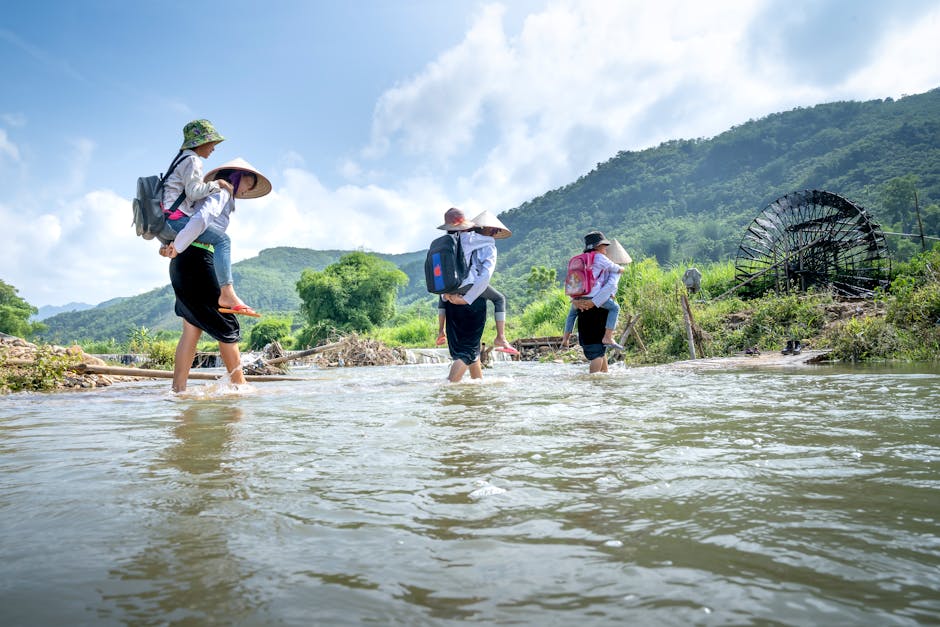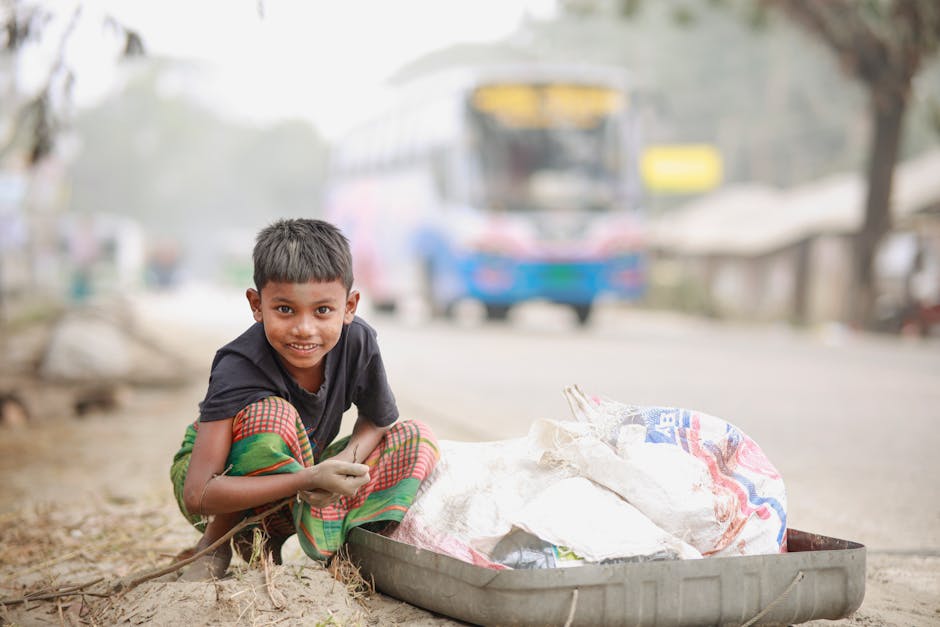How to Immerse Yourself in Local Cultures
Traveling to a new destination is an exciting prospect, offering the opportunity to explore different landscapes, try new cuisines, and meet people from diverse backgrounds. However, to truly experience a place and gain a deeper understanding of its essence, immersing yourself in the local culture is essential. By engaging with the customs, traditions, and way of life of the community you are visiting, you can create meaningful connections, broaden your perspective, and enrich your travel experience. In this article, we will delve into the various ways in which you can immerse yourself in local cultures and make the most of your journeys.
The Importance of Cultural Immersion

Cultural immersion is more than just observing or participating in traditional activities; it involves stepping out of your comfort zone, embracing unfamiliar customs, and learning to appreciate the uniqueness of a particular culture. By immersing yourself in local traditions, you can gain a deeper appreciation for the history, values, and beliefs that shape a community. This not only fosters respect and understanding but also helps to break down stereotypes and promote cross-cultural dialogue.
Moreover, cultural immersion allows you to form authentic connections with local residents, fostering friendships and creating lasting memories. By engaging with the people who call a place home, you can gain insights into their daily lives, aspirations, and challenges, creating a more meaningful travel experience. Whether through shared meals, conversations, or collaborative activities, cultural immersion can bridge the gap between visitors and locals, promoting mutual understanding and appreciation.
Ways to Immerse Yourself in Local Cultures

There are numerous ways to immerse yourself in local cultures while traveling. Whether you are exploring a bustling city, a remote village, or a tropical island, the following strategies can help you connect with the heart and soul of a destination:
1. Participate in Traditional Festivals and Celebrations

One of the best ways to experience local culture is by attending traditional festivals and celebrations. Whether it’s a religious ceremony, a harvest festival, or a cultural event, these gatherings offer a glimpse into the customs, rituals, and beliefs of the community. By joining in the festivities, you can witness traditional dance performances, taste authentic cuisine, and interact with locals in a vibrant and lively setting.
For example, in India, the colorful festival of Holi is celebrated with joy and enthusiasm, with people throwing colored powders and water at each other to mark the arrival of spring. Similarly, in Japan, the cherry blossom festival, known as Hanami, is a time-honored tradition where people gather under blooming cherry trees to appreciate the beauty of nature and enjoy picnics with family and friends.
2. Stay with Local Hosts or in Homestays

Another way to immerse yourself in local cultures is by staying with local hosts or in homestays. By choosing accommodation options that offer a more authentic and intimate experience, you can interact with residents on a personal level, learn about their way of life, and engage in daily activities. This immersive approach not only provides a unique insight into local customs but also allows you to form meaningful connections with your hosts.
Homestays are particularly popular in countries like Thailand, where visitors can stay with local families in traditional wooden houses, participate in cooking classes, and explore the surrounding villages. By living like a local, you can experience firsthand the warmth and hospitality of the community, gaining a deeper appreciation for their culture and traditions.
3. Learn the Local Language
Language is a key component of culture, serving as a means of communication, expression, and identity. By learning the local language of the place you are visiting, you can enhance your cultural immersion and connect more deeply with the people you meet. Even basic phrases and greetings can go a long way in fostering relationships and showing respect for the local culture.
There are many ways to learn a new language while traveling, from taking formal classes to practicing with locals in everyday situations. Apps and online resources can also be useful tools for language learning, providing interactive lessons and real-world examples. By making an effort to speak the local language, you not only show your interest in the culture but also open yourself up to new experiences and opportunities.
4. Explore Local Markets and Street Food
One of the best ways to experience the flavors and aromas of a culture is by exploring local markets and trying street food. These vibrant and bustling spaces offer a feast for the senses, with colorful produce, exotic spices, and mouthwatering dishes waiting to be discovered. By sampling traditional snacks, fruits, and beverages, you can immerse yourself in the culinary traditions of a place and gain a deeper understanding of its gastronomic heritage.
From the bustling night markets of Taiwan to the vibrant souks of Morocco, street food vendors around the world offer a window into the local cuisine and culture. By wandering through these lively marketplaces, you can engage with vendors, learn about regional specialties, and savor authentic dishes prepared right before your eyes. Whether it’s a steaming bowl of pho in Vietnam or a savory empanada in Argentina, street food can be a delicious and immersive way to connect with local cultures.
5. Volunteer with Local Organizations
Volunteering with local organizations is a meaningful way to give back to the community while immersing yourself in its culture. By participating in service projects, conservation efforts, or community initiatives, you can make a positive impact and gain a firsthand perspective on the challenges and opportunities facing the local population. From teaching English to children in a rural school to helping with environmental cleanup efforts, volunteering can be a rewarding and enriching experience.
There are numerous volunteer opportunities available around the world, ranging from short-term projects to long-term commitments. By aligning your interests and skills with the needs of the community, you can contribute in a meaningful way while also learning about the local culture and customs. Whether it’s working with wildlife in Africa or assisting with disaster relief efforts in Asia, volunteering can provide a unique and immersive window into the heart of a destination.
6. Participate in Cultural Workshops and Classes
Another way to immerse yourself in local cultures is by participating in cultural workshops and classes. Whether it’s learning traditional crafts, musical instruments, or dance styles, these hands-on experiences can offer a deeper insight into the artistic and creative expressions of a community. By engaging with local artisans, instructors, and performers, you can gain a greater appreciation for the craftsmanship and skill that goes into traditional practices.
Many destinations around the world offer cultural workshops and classes for travelers, ranging from pottery making in Mexico to batik painting in Indonesia. By signing up for these immersive experiences, you can connect with local artists, learn about indigenous techniques, and create your own unique souvenirs. Whether it’s weaving a traditional basket in Africa or mastering the art of sushi making in Japan, cultural workshops can be a fun and educational way to explore the heritage of a place.
7. Engage with Local Art and Music
Art and music are universal languages that can transcend cultural barriers and bring people together. By engaging with local art forms, performances, and exhibitions, you can gain a deeper appreciation for the creativity and expression of a community. Whether it’s visiting galleries, attending concerts, or exploring street art, these cultural experiences can offer insights into the history, traditions, and values of a place.
Many destinations boast a rich artistic heritage, from the vibrant murals of Brazil to the classical music of Austria. By immersing yourself in the local art and music scene, you can support local artists, attend cultural events, and discover hidden gems off the beaten path. Whether it’s watching a traditional dance performance in India or admiring contemporary sculptures in France, engaging with local art and music can be a soul-stirring and immersive experience.
Expert Opinions
According to cultural anthropologist Dr. Maria Sanchez, “Cultural immersion is a transformative experience that allows travelers to go beyond the superficial aspects of a destination and connect with its heart and soul. By engaging with local customs, traditions, and communities, travelers can gain a deeper understanding of the world and themselves.”
Travel blogger and influencer John Smith shares his thoughts on cultural immersion, “I believe that traveling is not just about ticking off bucket list destinations; it’s about stepping out of your comfort zone, embracing new perspectives, and learning from the people you meet along the way. By immersing yourself in local cultures, you can create meaningful memories and forge connections that last a lifetime.”
Conclusion
To wrap things up, immersing yourself in local cultures is a transformative and enriching experience that can broaden your horizons, deepen your understanding of the world, and foster meaningful connections. By participating in traditional festivals, staying with local hosts, learning the language, exploring markets and street food, volunteering with local organizations, participating in cultural workshops, and engaging with art and music, you can create a travel experience that is immersive, authentic, and unforgettable.
So next time you embark on a journey, consider stepping off the beaten path, opening your heart and mind to new experiences, and immersing yourself in the rich tapestry of cultures that make our world so diverse and fascinating. Whether you’re exploring a bustling metropolis, a serene village, or a remote wilderness, cultural immersion can be a powerful tool for personal growth, intercultural understanding, and global citizenship.




